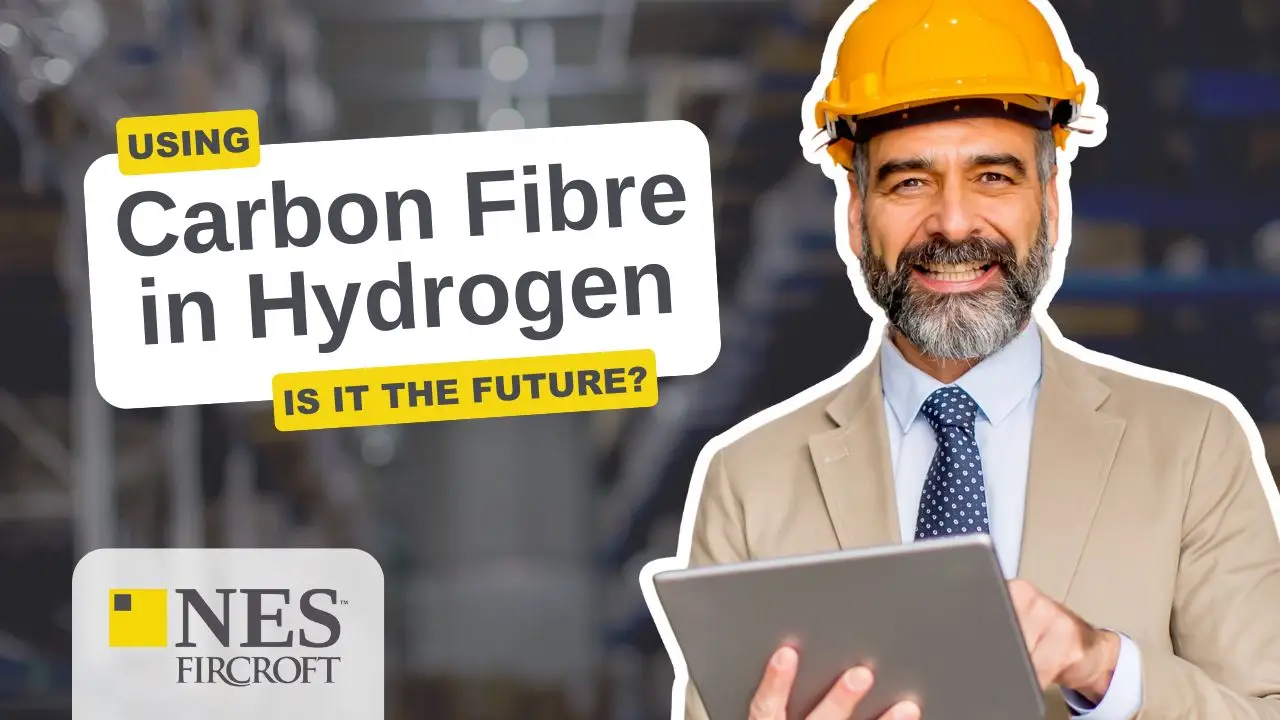How is the UK working towards net zero by 2050?
31 Jan, 202410 minsEmbarking on the ambitious targets of achieving net zero by 2050, the UK has set an example ...

Embarking on the ambitious targets of achieving net zero by 2050, the UK has set an example to the world by implementing legislative commitments and comprehensive strategies. Reaching this goal involves intricate planning across various sectors, including energy, research and development, households, farming, and finance. While commendable strides have been made, a critical review in 2023 exposed gaps and raised questions about the government's commitment to its net zero objectives.
This guide will explore the UK's net zero targets, including what net zero means to the UK, the review of its proposed objectives, criticisms of its strategies and the future of the UK’s goals of achieving net zero by 2050, including the subjects of job creation and the talent shortage within low-carbon sectors.
In this guide, we’ll explore:
- What does net zero mean to the UK?
- A review of the UK net-zero targets
- Criticism of the UK government's net-zero targets
- The future of the UK’s goals of achieving net zero by 2050
What does net zero mean to the UK?
For context, net zero means achieving a balance of the volume of greenhouse gases generated and the amount effectively removed from the atmosphere. Essentially, when the inflow and outflow of emissions are in sync, a state of net zero is attained. In practical terms, this means removing an equal amount of greenhouse gases, offset by the number of emissions released into the atmosphere. Achieving net zero necessitates a dual approach involving emission reduction and removal.
In June 2019, the UK government took what was considered a historic step by legislating a net zero emissions target for the country to achieve by 2050. This ambitious commitment and legal obligation focuses on ensuring the UK takes measures to support the renewable energy transition and reduce greenhouse gas emissions by 100% from what was produced in 1990.
The origins of the UK net zero target can be traced back to May 2019, when recommendations were made by the Climate Change Committee (CCC). As a statutory body providing independent advice on climate change, the CCC plays a pivotal role in guiding the UK government to make key decisions regarding its climate actions.
In October 2021, the UK government outlined its policy pathway in its 'Net zero strategy' published by the Department for Business, Energy and Industrial Strategy. This comprehensive strategy was implemented to chart the course toward this ambitious goal of reaching net zero by 2050. The strategy consists of various policies, including:
- Ceasing new petrol and diesel car sales
- Increased promotion of sustainable aviation fuel
- A plan to triple the rate of England's woodland creation
- Greater investment in clean electricity and hydrogen production
- More funds for households to adopt low-carbon heating systems
- Providing farmers with incentives to embrace low-carbon farming methods
Recognising the importance of achieving net zero by 2050 to prolong the life of the planet, the UK government revealed additional targets to support its net zero efforts in 2021. These interim goals focused on decarbonising its power system and lowering overall emissions produced by the UK by 78% by 2035.
The UK's commitment to achieving net zero is a goal shared by other nations, with more than 140 countries and over a third of the world's largest organisations also setting net-zero targets.

A review of the UK net zero targets
As mentioned, in 2021, the UK government unveiled its net zero strategy, outlining its plan to achieve its net zero targets by 2050. However, in the wake of significant global events, such as the conflict between Russia and Ukraine, the UK economy has faced challenges such as high energy prices and broader inflation rates.
Responding to these economic shifts, the UK government revealed in 2022 that it had decided to review its net zero strategy to see how it could take more economically friendly and efficient measures to maintain its commitment and reach its net zero targets. They also wanted to better understand the implications its net zero targets would have on the UK public and the economy, including ways it could optimise economic opportunities during the energy transition.
Chaired by Chris Skidmore MP, the review concluded in early 2023 to ensure that the goal of achieving net zero by 2050 does not impose undue burdens on businesses or consumers. The 323-page net zero review highlights the UK economy and assesses the impact on communities and the general population.
The review offered 130 recommendations covering various topics, from specific measures like advancing the end of routine flaring by oil and gas companies to broader aspirations such as enhancing collaboration between central and local government.
Here's an overview of the key recommendations in various sectors:
- Energy
- A net zero fund for investments in low-carbon and offshore wind projects, which would replace the windfall tax on North Sea oil and gas
- Develop a clear strategy for nuclear power, emphasising the need to achieve the UK's nuclear baseload requirement, including small modular reactors
- Formulate a 10-year delivery plan for hydrogen, encompassing funding and technology decisions, including applications in home heating
- Expand Ofgem's remit to align with the net zero target
- Research and Development
- Establish incentives for research and development into new low-carbon and renewable energy technologies
- Set up three new demonstrator projects by autumn
- Households
- Extend the boiler upgrade scheme, whereby people can be given grants for installing heat pumps and other clean energy boiler replacements as a way to incentivise the adoption of heat pumps
- Chris Skidmore proposed what he calls a "rooftop revolution," which suggests a consultation on fitting new homes with solar panels to generate cheaper renewable energy
- Farming
- Layout detailed plans for environmental land management schemes, replacing the EU farm subsidy system
- Encourage nature-based solutions to increase carbon sinks
- A biomass strategy - although there has been nothing to specify what this consists of
- Finance
- Explore opportunities for the banking sector to make the UK a competitive financial centre for green transition capital
- Implement clear rules for companies reporting their climate impacts
While the review addressed various crucial aspects of how the UK plans to reach net zero by 2050, there were some notable gaps, as highlighted by The Guardian.
These gaps in the review included:
- A lack of clear targets for onshore wind and solar farms
- Limited recommendations for addressing home heating emissions, yet the government review states no new gas boilers will be installed as of 2033 when they previously said they were targeting 2035
- There is no explicit endorsement of hydrogen for home heating
- Inadequate guidance on behaviour change to meet net-zero targets
- No clear recommendations are made for addressing emissions from public transport, reflecting a broader absence of government strategy in this area
In summary, the review, while comprehensive in some aspects, revealed gaps and highlighted areas where decisive action and clearer strategies are needed to ensure the successful achievement of the UK's net zero target by 2050.

Criticism of the UK government net zero targets
While the UK has made strides in reducing its domestic greenhouse gas emissions, a critical aspect often overlooked by the government is the exclusion of emissions associated with products manufactured and imported from overseas. On the surface, the 48.7% reduction in emissions reported since 1990 fails to account for the overall carbon footprint linked to the UK's consumption patterns.
Many have become critical of the government's neglect of the environmental impact of imported goods. The government's net zero-related statistics provide an incomplete assessment of the nation's actual contribution to global emissions, effectively clouding the true effectiveness of its climate policies.
In 2023, the CCC issued a warning about the lack of progress the government was making towards its climate targets. The committee has expressed growing uncertainty around the UK reaching its net-zero targets. In their 2023 Progress in Reducing Emissions 2023 Report to Parliament, the CCC cited the government was acting with "a lack of urgency" and "policy progress over the past year has been slower than expected."
Adding to the criticism, Prime Minister Rishi Sunak announced a series of policy changes in September 2023. These alterations included delaying the new petrol and diesel car ban from 2030 to 2035. The PM also introduced exemptions to the UK's net zero strategy, including allowing 20% of households to remain reliant on non-renewable heating sources. The CCC believes these changes undermine the UK's commitment to achieving net zero.
The future of the UK’s goals of achieving net zero by 2050
In pursuit of the ambitious net-zero target by 2050, the UK government has made a series of bold statements outlining a commitment to transformative changes across various economic sectors, including renewables.
One essential part of this strategy involves transitioning to fully clean electricity by 2035, including advancements in deploying wind, solar, and nuclear power projects. The aim is to reduce the UK's reliance on fossil fuels for electricity generation and foster a sustainable energy ecosystem that aligns with the broader net-zero agenda.
As mentioned, Rishi Sunak has pushed the diesel and petrol ban from 2030 to 2035.
However, this doesn't mean we won't see any change from now until then. A pivotal component of the government's plan is to ensure that 80% of new car sales and 70% of new van sales are emission-free by 2030. This mandate will see the transportation sector transition from traditional combustion engines to cleaner and more sustainable alternatives, such as electric vehicles.
In 2024, car manufacturers will need to ensure that 22% of their new car sales and 10% of their van sales are zero-emission vehicles. A greater incentive to support this is that car manufacturers failing to hit this quota will be fined £15,000 per non-compliant emission-free car and £9,000 per van, with the potential of the latter fine increasing to £18,000.

Additionally, the government have committed to capturing and storing between 20 and 30 million tonnes of CO2 annually by 2030 to help mitigate the impact of existing emissions. Carbon capture and storage technologies will play a crucial role in offsetting these emissions from industries that are challenging to decarbonise entirely.
The government has also pledged to install 600,000 electric heat pumps annually by 2028. By encouraging the widespread adoption of electric heat pumps, the UK aims to revolutionise how homes are heated, reducing reliance on traditional heating methods that contribute to carbon emissions.
This transition to a net-zero economy aligns with environmental objectives while presenting an opportunity for economic growth and job creation. Approximately 250,000 jobs have already been generated during the energy transition, with the promise of more to come. The potential for net employment creation in the UK is substantial, with estimates ranging from 135,000 to 725,000 new jobs in low-carbon sectors by 2030.
Additionally, the Institute for Public Policy Research (IPPR), a London-based independent charity supporting a greener future, believes the shift to a green economy could create 1.6 million new jobs.
Scotland is a prime example of the UK's net-zero efforts, with its renewables sector experiencing a 50% growth in jobs in 2021. The expansion of roles predominantly in onshore and offshore wind and household heating technologies highlights the economic value derived from embracing clean energy initiatives.
However, as the UK continues to set ambitious targets for offshore wind capacity, solar expansion, nuclear power, and electric vehicle infrastructure, the demand for skilled workers is set to surge. As the world, not just the UK, is facing a skills gap and talent shortage, this could impede the progress of the UK's green agenda and affect the talent acquisition of organisations looking to bolster their efforts towards the energy transition.
Experts warn that the government must promptly address this critical talent shortage to realise its net-zero ambitions. Addressing the looming skills gap and implementing robust industrial and training strategies are imperative to ensure that the UK can effectively transition to a low-carbon economy and meet its ambitious net-zero targets.
We delve into these challenges and strategies to overcome them in our guide on the US Inflation Reduction Act.
Final thoughts on the UK’s net zero by 2050 targets
Looking ahead, the UK's pathway to net zero involves:
- Transformative changes in key sectors,
- Emphasising a transition to clean electricity,
- Increased adoption of electric vehicles
- Ambitious targets for carbon capture and storage
The government's commitment to job creation in the low-carbon sectors aligns with environmental objectives but highlights the urgent need to address a looming skills gap and talent shortage.
In navigating these challenges, the success of the UK's net zero targets hinges on robust strategies, decisive actions, and a commitment to fostering a sustainable and resilient economy. As the world continues to address climate change issues, the UK's net zero objectives are a significant benchmark of environmental stewardship, economic growth, and the imperative to secure a sustainable future for future generations.
Looking to grow in the renewable energy industry?
If you're interested in supporting the UK's efforts to achieve net zero by 2050 with renewable projects but need the talent to do so, we can help. With more than 20 years of experience at the forefront of renewable energy recruitment, we're best placed to help innovative organisations and fast-growing companies find the talent they need to progress in the clean energy space.
Contact us today to discuss how we can help you thrive in the renewables industry.









